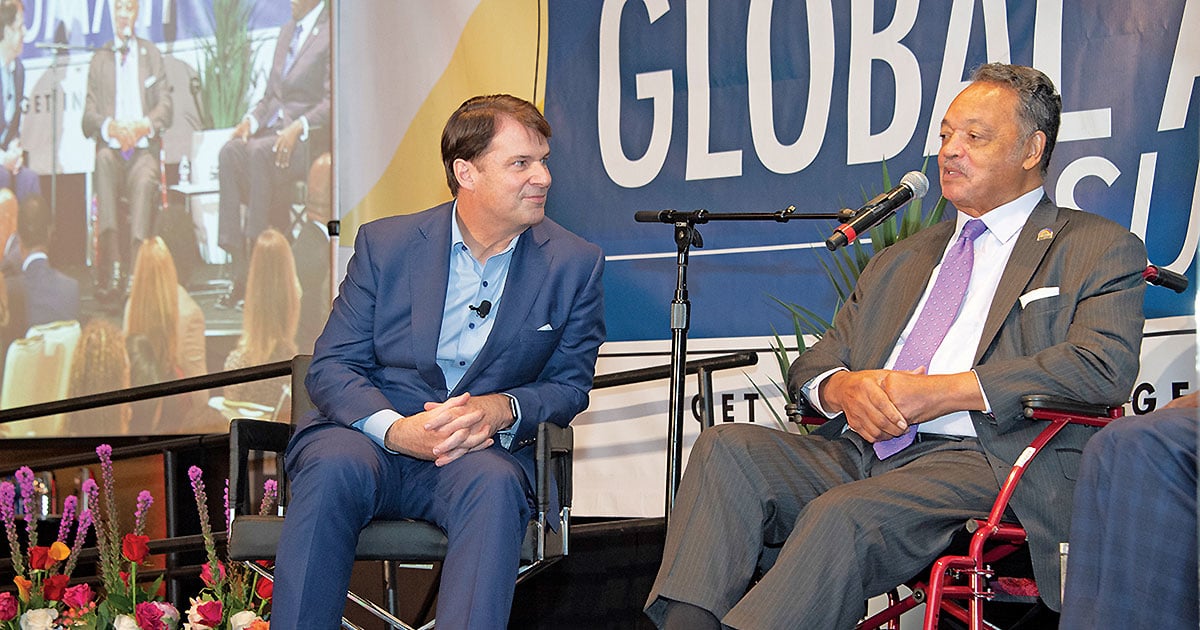
DETROIT — The burgeoning electric vehicle market is flush with opportunities for minority entrepreneurs looking to make a play in that world, top auto executives say.
Ford Motor Co. and Stellantis, each pursuing ambitious EV product goals, said it’s not too late to get involved.
Ford CEO Jim Farley and Stellantis North America COO Mark Stewart talked about opportunities for minority businesses in the EV sector during the Rainbow PUSH Coalition Automotive Summit this month in Detroit. Coalition founder Jesse Jackson Sr. and John Graves, chairman of the coalition’s automotive project, also talked with the executives about the pursuit of diversity in the upper ranks of their companies and dealerships.
Stewart said the EV market is young, with relatively few zero-emission models being sold in the U.S. compared with the rest of the world. He said the “time is still prime” for minority businesses to make a move on EVs.
Stellantis, which has announced two battery plant joint ventures in Indiana and Ontario, is in negotiations for a third plant that most likely will be in the U.S., Stewart said. The company, created by the 2021 merger of Fiat Chrysler Automobiles and PSA Group, is investing $35 billion over several years into electrification and software as it remakes its product portfolio.
The EV supply chain presents chances to find business at various levels of the production process.
“The time is now to get on board with us,” Stewart said during his converstion with Jackson and Graves. “There are so many great opportunities in that space for us all to grow together. It’s a chance for some of our smaller minority businesses to really grow and get huge.”
Stewart says Stellantis has some initiatives that can help minority companies build industry relationships.
“What we see in the EV transition is a way to enhance just what we did with the MatchMaker program of helping to bring up minority suppliers and Black-owned businesses right in our communities where we are,” Stewart said.
“We are absolutely setting ourselves targets to do the same going forward. We see it as a great opportunity to revitalize our communities at the same time.”
Regarding companies looking for a place in the EV market, Farley said Ford is “open for business — we always have been.”
He added: “We love talented people. We love people that have that ability to innovate and to outwork others, so we love that. That’s what Ford is all about.”
Farley said Ford is reinventing itself as it prepares to insource EV battery production and convert more plants to build zero-emission vehicles.
African-American workers will play a sizable role at Ford plants during this reimagining, Farley said, accounting for 30 percent of the company’s U.S. hourly work force.
“It takes 40 percent less labor to make an electric car,” Farley said. “We have to insource so that everyone has a role in this growth.
“We have a whole new supply chain to fill out. Batteries and motors and electronics, and diversity has to play an even greater role in that rollout than we’ve had.”